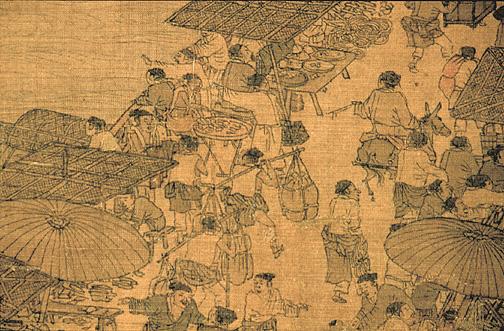In ancient China, there was a cook for the royal court who went back to his hometown with a large sum of money after retirement. His hometown was in a small county, so he opened a restaurant. Business was very good there.
One year, a plague spread throughout the land. Because this county was close to the capital, the royal court sent a special team to help treat the plague. Yet they found that none of their treatments worked. They carefully studied the plague to find out what herbs could be used to treat it, but all their attempts failed. The plague grew more severe, and many people died every day. People were frightened and panicked. Even the rich were left helpless, having the money but not the cure in their hands. The officials in the royal court forgot about their ambitions for wealth and power and grew increasingly worried about whether they would survive.





